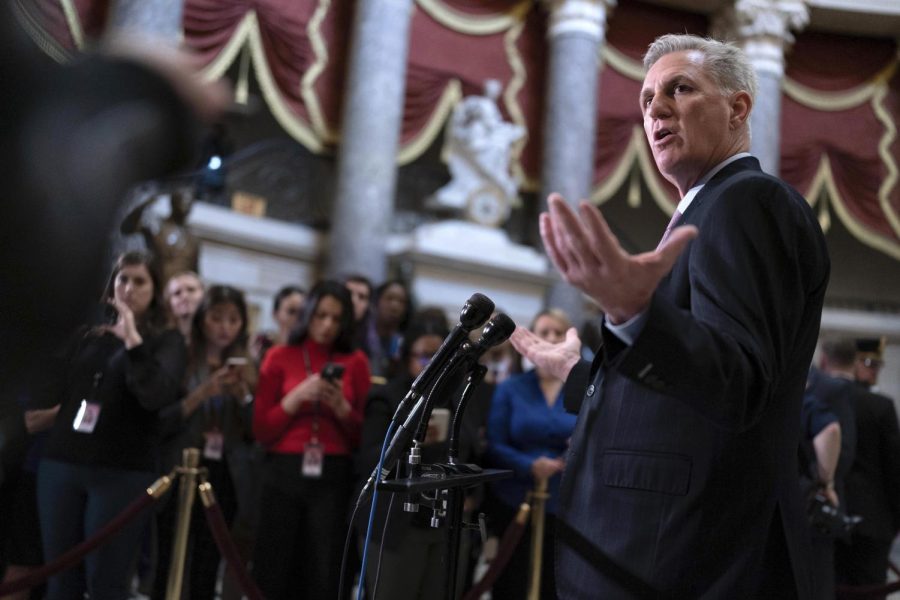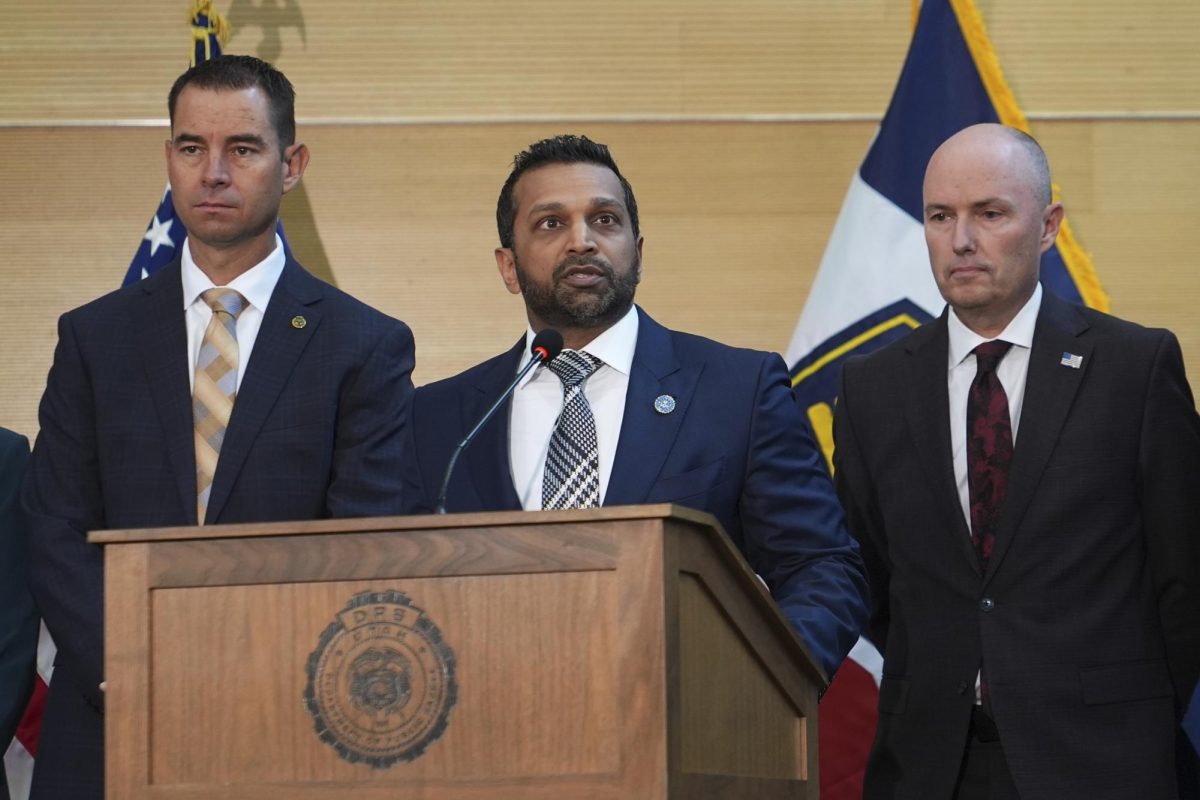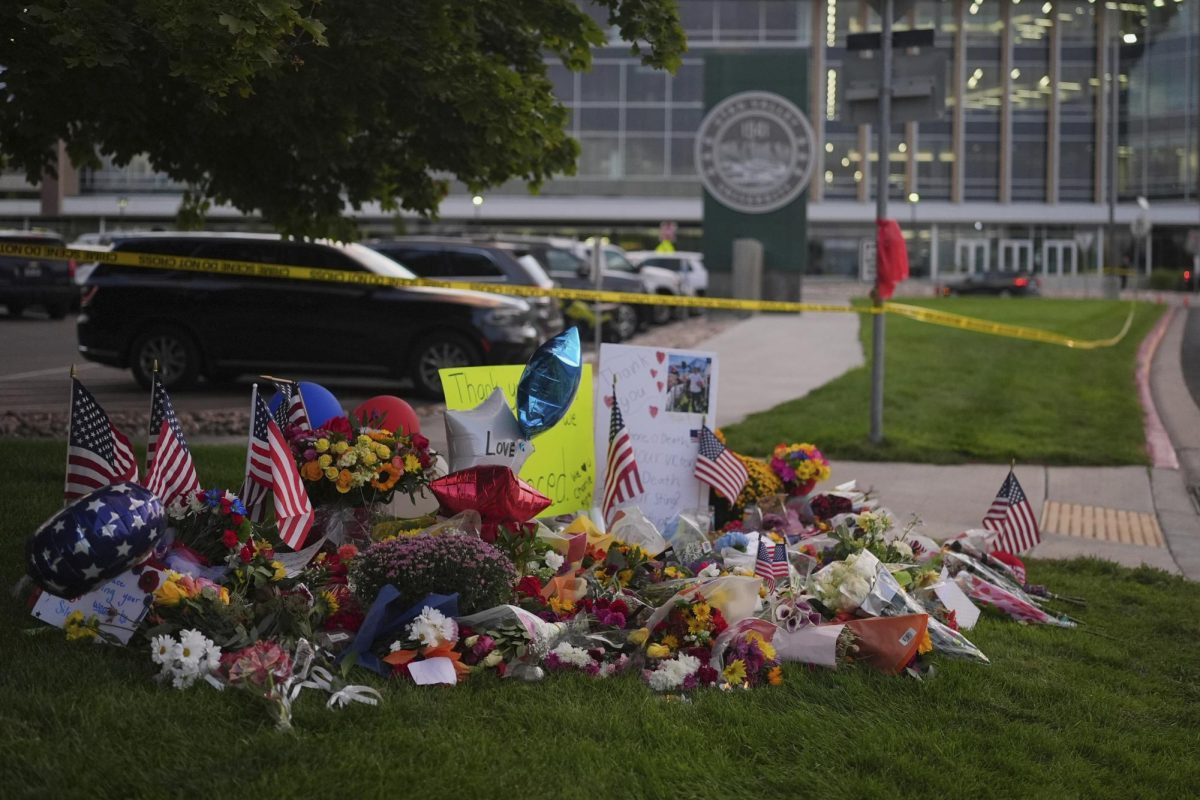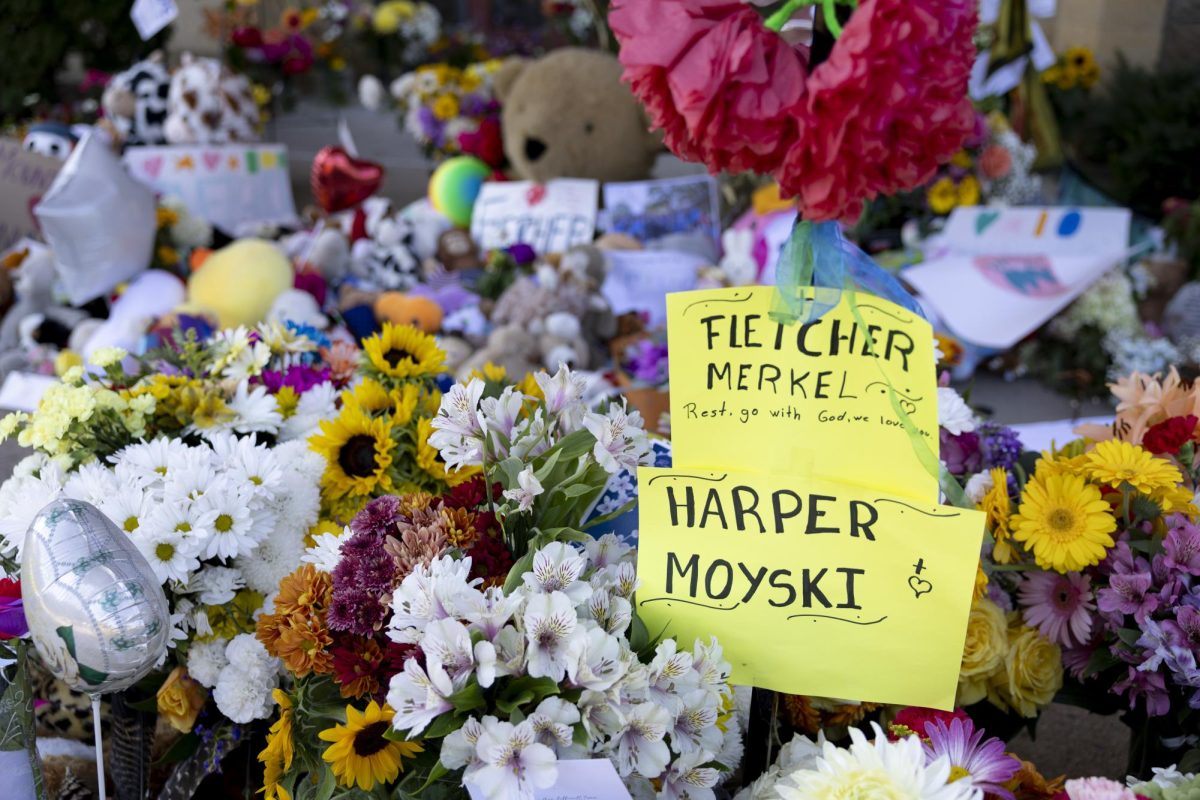Washington’s Ghost Problem
Speaker of the House Kevin McCarthy, R-Calif., speaks during a news conference in Statuary Hall at the Capitol in Washington, Thursday, Jan. 12, 2023.
January 13, 2023
There it stands, dark and ominous. A nighttime photo of the capitol building below a pitch-black night sky. In thin, white text — the signature font of the Washington Post’s Instagram page — a timid question floats over the peak of the domed roof.
“Does the House even exist right now?”
The Instagram post, teasing an article by reporters Dan Zak and Ben Terris, came just one day after an equally surreal picture. This one’s another shot of the House at night, with the American flag rising into a spotlight. In plain text, the Washington Post tells us this: “The House technically has no members.”
Over four days, news outlets scrambled to make sense of the chaos as California Republican Kevin McCarthy became the first Speaker of the House nominee in a century to lose the initial vote and the U.S. politics beat became an acute case of D.C. tachycardia. A process that the general public generally ignores became a public source of anxiety and ridicule when, through the dust incapable of settling, the reality that no representative could be sworn in without deciding on a Speaker began to set in.
As the not-technically-representatives re-voted, and kept re-voting, the Washington Post’s cautious style of political speculation started to creep in at the corners of the CSPAN footage, trailing behind the camera operators who were free to wander the House floor because there was no Speaker to stop them.
Seriously, does the House even exist right now?
The halls seemed to be buzzing with activity, with lawmakers adjourning and convening into the late hours of the night, sacrificing sleep and, in one case, arriving moments after a surgery to vote again. But without a Speaker, none of that work technically happened in the House.
This legislative Purgatory is a product of the Constitution itself, which mandates the existence of a Speaker of the House but outlines no way to elect one. At third in line in Presidential succession, the position can grind government processes to a halt as the first steps of the 118th Congress have shown. The election details have been decided by hundreds of years of American tradition, with past hiccups preceding times of social turmoil like the Civil War.
It’s a process that most young people have never really had to think about, with California Democrat Nancy Pelosi taking up the role in most years since 2007. But she was sworn in this year without a leadership role for the first time in 22 years, opting instead to pass her authority to a younger successor.
Within her party, New Yorker Hakeem Jeffries seemed to be a popular successor. But the “red wave” that rocked much of the country at the midterm elections saw Republicans gain enough of a foothold to try for House leadership.
And yet, McCarthy didn’t prove to be a strong enough nominee to rally the energy around. Republican, sure, but not enough to please the zealots. Far-right defectors from the rest of the GOP found other warm bodies to try and shuffle into the chair. Their diversion of votes created a situation in Congress that has been likened to Ever Given’s 2021 blockage of the Suez Canal.
So as the House hit a snag on its first order of business, camera crews, staffers and lawmakers traipsed the floors of a building where a House could not exist — where those inhabiting it couldn’t exist, really, until they were sworn in.
The story of the haunted House is one with no satisfying ending. The faction of misbehaving Republicans, making a deal with terms that will likely never be known, stopped voting in defiance of the rest of their party. McCarthy was sworn in as Speaker after 15 rounds of voting; corporeal forms now lead the House.
While the ridiculously high number of ballots it took to land McCarthy his new job is known, the number of concessions he made to get his votes will never be public knowledge. The hushed agreements made with the most extreme of the not-yet-representatives won’t find themselves on the Washington Post’s Instagram. How much McCarthy traded away will never be fully understood.
And if so little remains of the man himself, there may as well be a ghost haunting the Speaker of the House’s office.












